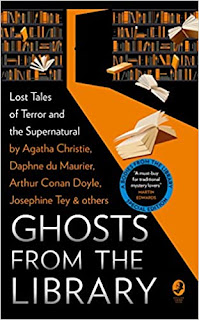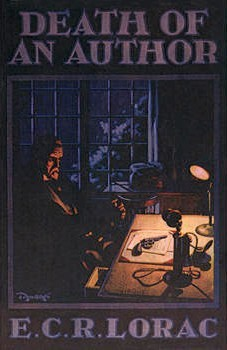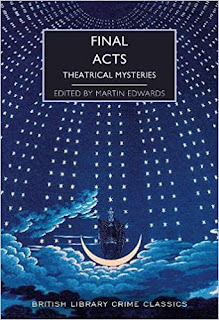There's a lot going on at present, so much that I'm actually finding it tricky to keep up. One thing is for sure: I've been very fortunate. Among other things, I'm hoping to chat to Jeremy Paxman shortly - a man whose career has long fascinated me. I just watched last night's ITV documentary in which he discusses his experience of Parkinson's Disease and I found it very poignant. He echoed the life advice given by my good friend the writer Jessica Mann, who had the same disease for many years: Do it now. I try to follow that advice as much as I can. I do find it amazing to look back at what has happened since I started this blog. Anyway, I hope that today I can be forgiven a dollop of self-promotion/trumpet-blowing (if not, better look away now 😀 ).

For anyone who might be interested, I wanted to mention that Gallows Court is currently one of Apple's Free Books of the Week (in the UK only) and, at least at the time of writing, is number one bestseller in that particular chart. I gather than Mortmain Hall is also available from Apple for a mere 99p for the next few days. Given the differences between the two books, I continue to be fascinated to find out which readers prefer Gallows Court and which Mortmain Hall - opinion remains quite evenly divided. I'm so pleased by the reaction to these books. Although they are definitely entertainments, they do demand a bit of engagement from the reader and I did wonder when writing them how they would be received. But although not everyone 'gets' what I'm trying to do, the vast majority of readers do. Which is why I often say in writing workshops that it's important for a writer to trust their readers.

And then there's Blackstone Fell, which has had some wonderful reviews since publication a month ago. Among those reviews was a great one from Barry Turner in the Daily Mail ('Martin Edwards holds his own with the best of classic crime') and a lovely piece in The Times by Mark Sanderson ('He leaves you wanting more').

I was extraordinarily lucky the following Saturday, when Christina Hardyment reviewed The Life of Crime as 'audiobook of the week' in...The Times. It can't have happened too often that an author has two fantastic reviews in 'The Thunderer' in successive weeks. I was flattered by Christina's description of me as a 'fine novelist' but blushed even more at her statement that I'm 'the closest thing there has been to a philosopher of crime writing'. Well, whatever one makes of that description, it's undeniably generous and gratifying. Meanwhile, I gather that because sales of the book to date have exceeded expectations, especially in the USA, it's being reprinted already. There are also to be translations in countries as unexpected as China and Hungary.
Meanwhile, The Traitor, commissioned by Otto Penzler and originally published by Mysterious Bookshop as a limited edition 'Bibliomystery' is - as from today - available as an ebook from my lovely British publishers, Head of Zeus. I enjoyed writing this novella about obsessive book collecting hugely and it's a subject I'd like to explore further, not least because I'm an obsessive book collector myself.
Books about books are understandably popular and it's noteworthy that one of my most commercially successful anthologies was last year's Murder by the Book. The British Library has also just published my latest themed anthology. Final Acts is a collection of theatre-related mysteries and was fun to put together.
I've had a long association with the small American Press Crippen & Landru. Under the excellent stewardship of first Doug Greene and now Jeffrey Marks, they have done a wonderful job in reviving 'Lost Classics' in a series which far pre-dates the British Library series. It's many years since I curated for them a collection of obscure stories by Ellis Peters and now I've written an intro for the first edition of the collected Gideon stories by John Creasey. Gideon was perhaps his most successful character and this edition also contains essays by his son Richard and the American crime expert Mike Nevins.
As regards short stories, 'No Peace for the Wicked' appeared in the latest issue of Ellery Queen's Mystery Magazine, while 'The Woman Who Never Was' has just been included by that master anthologist Maxim Jakubowski in Black is the Night, an anthology of stories paying tribute to Cornell Woolrich, an author I've long enjoyed reading.
Today, also, I've been announced as one of the headliners at next year's Shetland Noir, which should be a wonderful experience. And to round things off, this weekend, a Korean TV documentary production team is coming to my home to interview me about a particular aspect of my writing; we'll then be doing some filming in Manchester. They are especially interested in the relationship between crime fiction and the British weather...honestly, there are times when life becomes positively surreal....




















